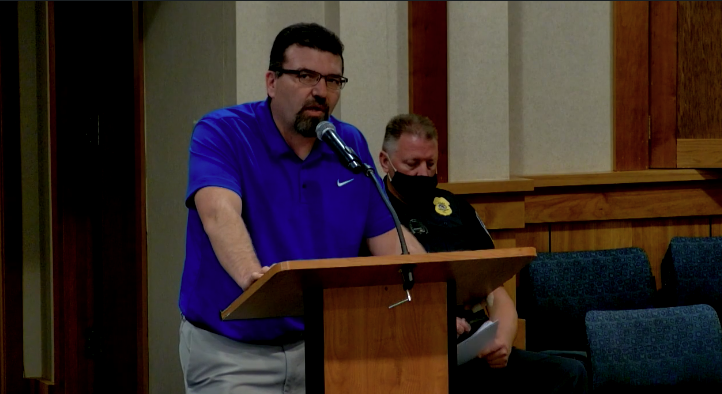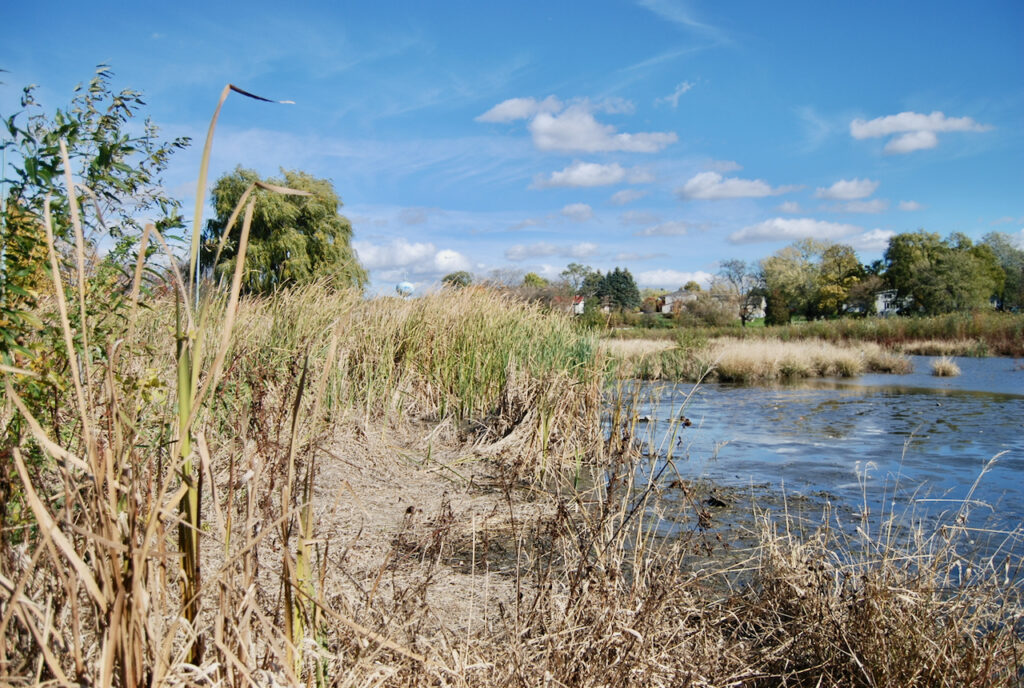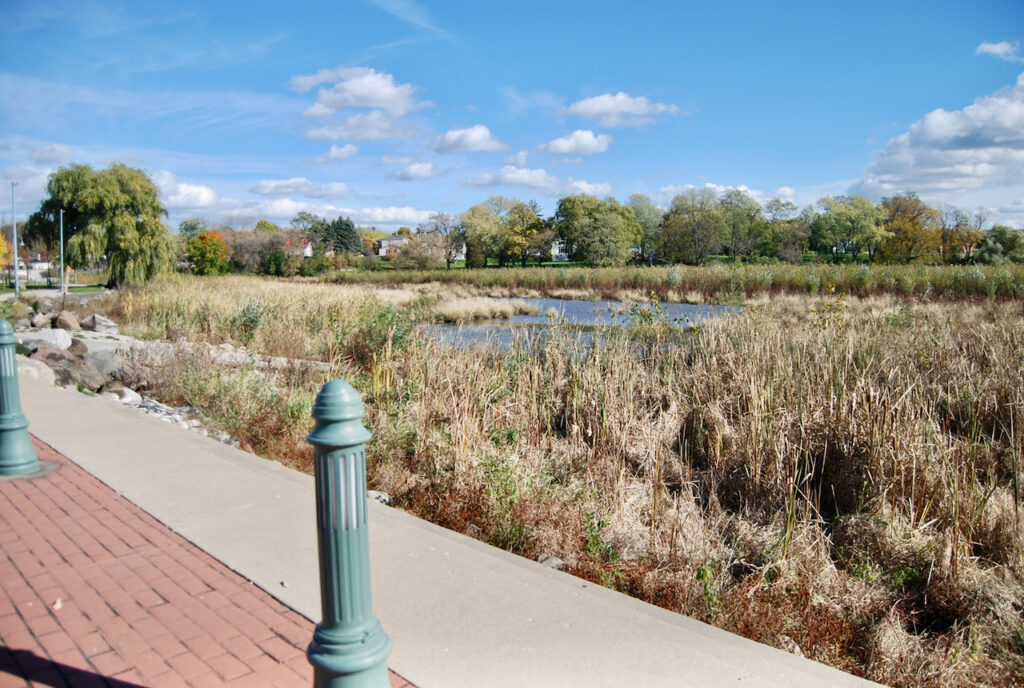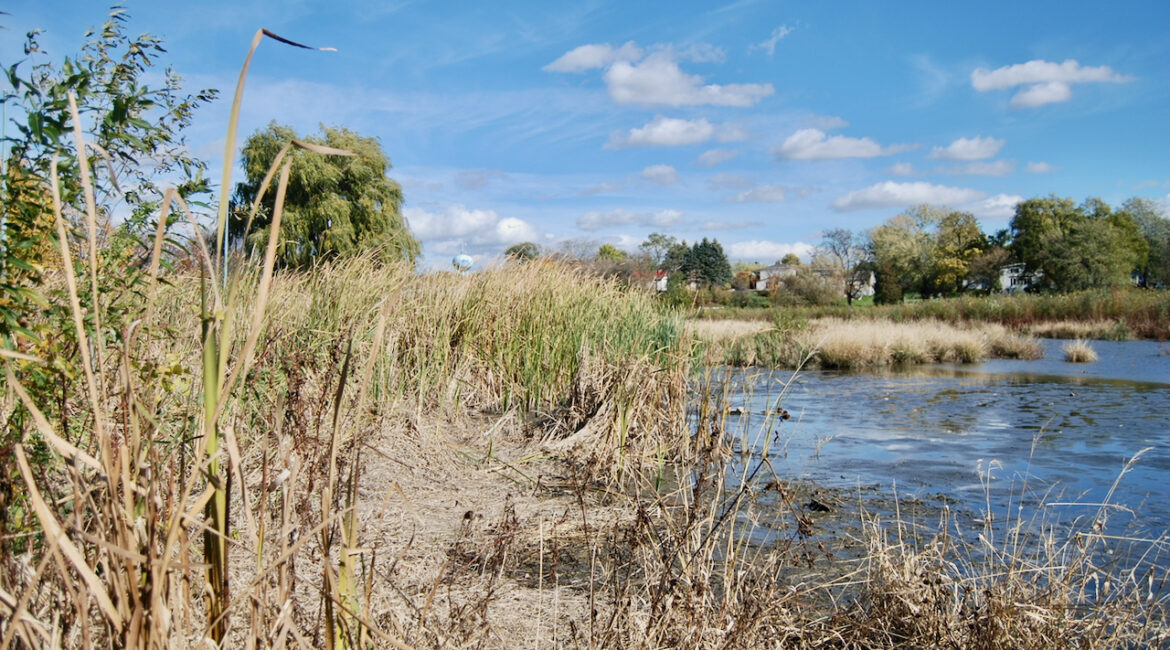By Kim McDarison
Whitewater City Manager Cameron Clapper Tuesday announced that mowing activities to reduce vegetation growth and prepare the Cravath and Trippe lake beds for future dredging will begin Friday and likely will reach completion over the weekend.
The information came as part of a city manager’s report delivered to the Whitewater City Council during its regularly scheduled monthly meeting.
According to Clapper, a next step in the process would include burning vegetation, with that activity slated for late November or early December.
After burning is completed, Clapper said, lake dredging is anticipated to begin sometime in early 2022.
In a lake restoration update delivered during a city council meeting held Oct. 19, Parks and Recreation Director Eric Boettcher noted that plans to use herbicide as part of the ongoing lake restoration efforts had been reevaluated.
According to Boettcher, use of herbicides within the lake beds, as previously planned, would likely be greatly reduced. He cited plant die down, which was naturally occurring, as reason for reevaluating the plan.
Lake update from Boettcher
Boettcher said that after talking with the city’s consultant, Field and Stream Restorations, which is also the company that will be performing the herbicide and mowing work, he’d been made aware that vegetation die down within the lake beds had reduced the potential effectiveness of herbicidal spraying.
According to Field and Stream, Boettcher said, “Over 25% of the vegetation — there is 25% die back — so what that means is that we could spray, but it wouldn’t be as effective as it was over a month ago. With the drought lake conditions this year, everything has gone to seed a lot earlier, so we are looking at transitioning and switching over to mowing the lake bed.”
Boettcher noted that some spraying might still be effective, but that activity would not occur in areas that had “gone to seed.”
“The majority of the lakebed will be mowed,” he said, adding that he believed the activity would start around the first week in November.
Field and Stream Restorations has three different types of mowers that will be employed in the lake beds, Boettcher said.
They are a Kubota with a track and a 57-inch deck, a John Deere with a 64-inch deck, and an ATV with an attached mower.
Some cutting of bigger trees will also be done by hand, he added.
“That is our most effective way to take care of that at this point,” Boettcher said.
“They may spray certain areas if it’s going to be deemed effective, but they are looking at the majority of it being mowed,” Boettcher added.
According to Boettcher, the city is working towards obtaining a burn permit, with hopes that an initial controlled burn can take place within the lake beds at the end of November or early December. Plans further call for a second controlled burn to take place in April or May, he said.
“We will burn in November, December, then hopefully have our dredging in the winter and do another controlled burn before we refill (the lakes),” Boettcher continued.
Additionally, Boettcher said, the city has posted a bid for dredging. A request for bids was released on Thursday, Oct. 14, with the bidding period closing on Nov. 6. He anticipated bringing a bid proposal before council on Nov. 16.
Councilman Jim Allen asked if the city had received an “adequate number of bids.”
Boettcher noted that the city had received one or two inquiries, but it was still early in the process.
Allen noted that he had seen a drone flying over the lakebed, presumably taking pictures and mapping, he said.
Boettcher said drones had been taking photos and video of the lake beds and the information would be used to update dredging plans.
He said, initially, the city planned to remove 87,000 cubic yards of lakebed materials, but with “scouring,” over a period of time, there was a likelihood that less materials might be removed.
“With the scouring and new additional time with the drawdown, they (mapping contractor) are thinking that we won’t have quite as much material to remove, so they are reevaluating that to make sure that our bid quantities are correct,” Boettcher said.
Defining “head cutting” and scouring, he said: “The head cutting is the stream, basically, that is going through each lake, and as we would then draw down, the scouring is basically the erosion of that stream; so that has gone down further and further because we’ve been drawn down for an extended period of time. So that has removed some of the sediment that we were planning on removing, so that is why we are reevaluating the amount of material to remove through our dredging plan footprint, and that way, we have a better idea of what we’re asking our bidders, or our contractor, to basically remove.”
More accurate information would help avoid work change orders in the future, he said, adding: “it is important that we have an accurate quantity of actual sediment that we will be removing.”
Councilwoman Brienne Brown asked about the city’s plans to inform lake area residents about changes being made in the city’s plans.
She had earlier heard from constituents, she said, regarding a meeting about herbicides, with those people noting that they were unaware of the meeting, she said.
Boettcher said the city made two public postings about the meeting and mailed a packet of information to residents living along the lakes. Information was also posted to the city’s website, he said.
“Moving forward with it and the changes, the mowing isn’t as big a deal as the herbicidal treatment because we are just cutting down the materials,” Boettcher said.
“There were a lot of rumors floating around,” Brown said, adding: “People who are most affected … are the people who live against the lakes, so it seems to me like we need to be a little bit more diligent about giving them information.”
Boettcher said that could be done.
An earlier story about lake restoration plans is here: https://fortatkinsononline.com/herbicide-application-explained-could-begin-next-week-whitewater-officials-say/.

City of Whitewater Parks and Recreation Director Eric Boettcher addresses the Whitewater City Council Tuesday, Oct. 19. Boettcher delivered a lakes restoration project update, sharing with council that the herbicide application earlier planned for the Trippe and Cravath lake beds had been reevaluated. The majority of the lake beds will instead be mowed, followed by two controlled burns and dredging before water is returned to the lakes.




Four photos above: Vegetation in the drawn down Cravath lakebed is dying back, a phenomenon attributed to drought conditions brought about by an extended drawdown period and seasonal changes, according to city officials. The conditions have prompted a reevaluation of earlier plans to use herbicide to kill vegetation growing in the lakebed, officials have said. Mowing, to prepare the lakebed for two anticipated controlled burns and dredging is scheduled to begin on Friday. Kim McDarison photos.
This post has already been read 1681 times!
